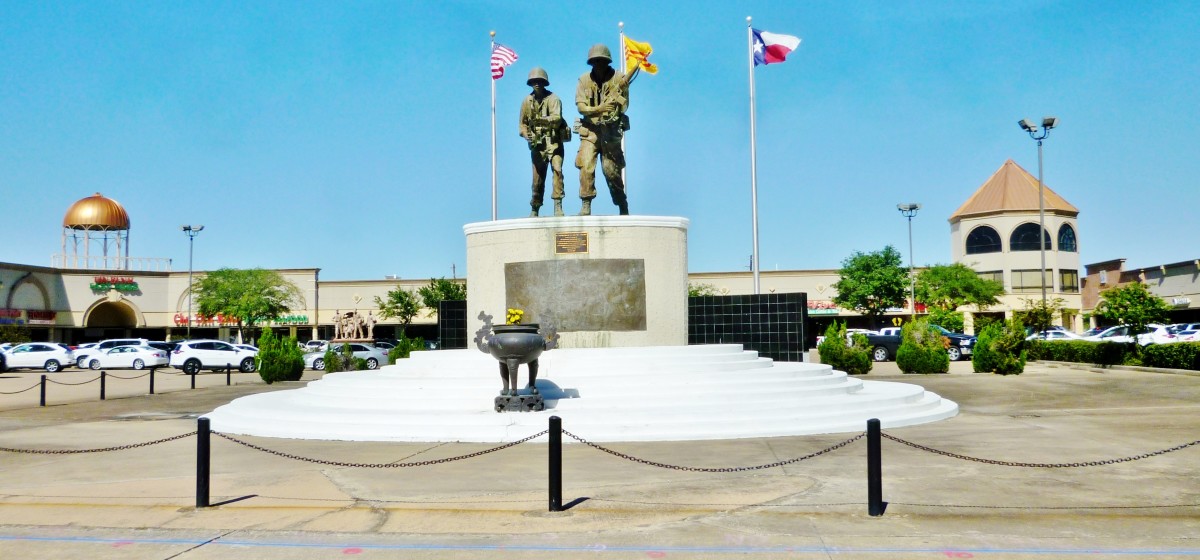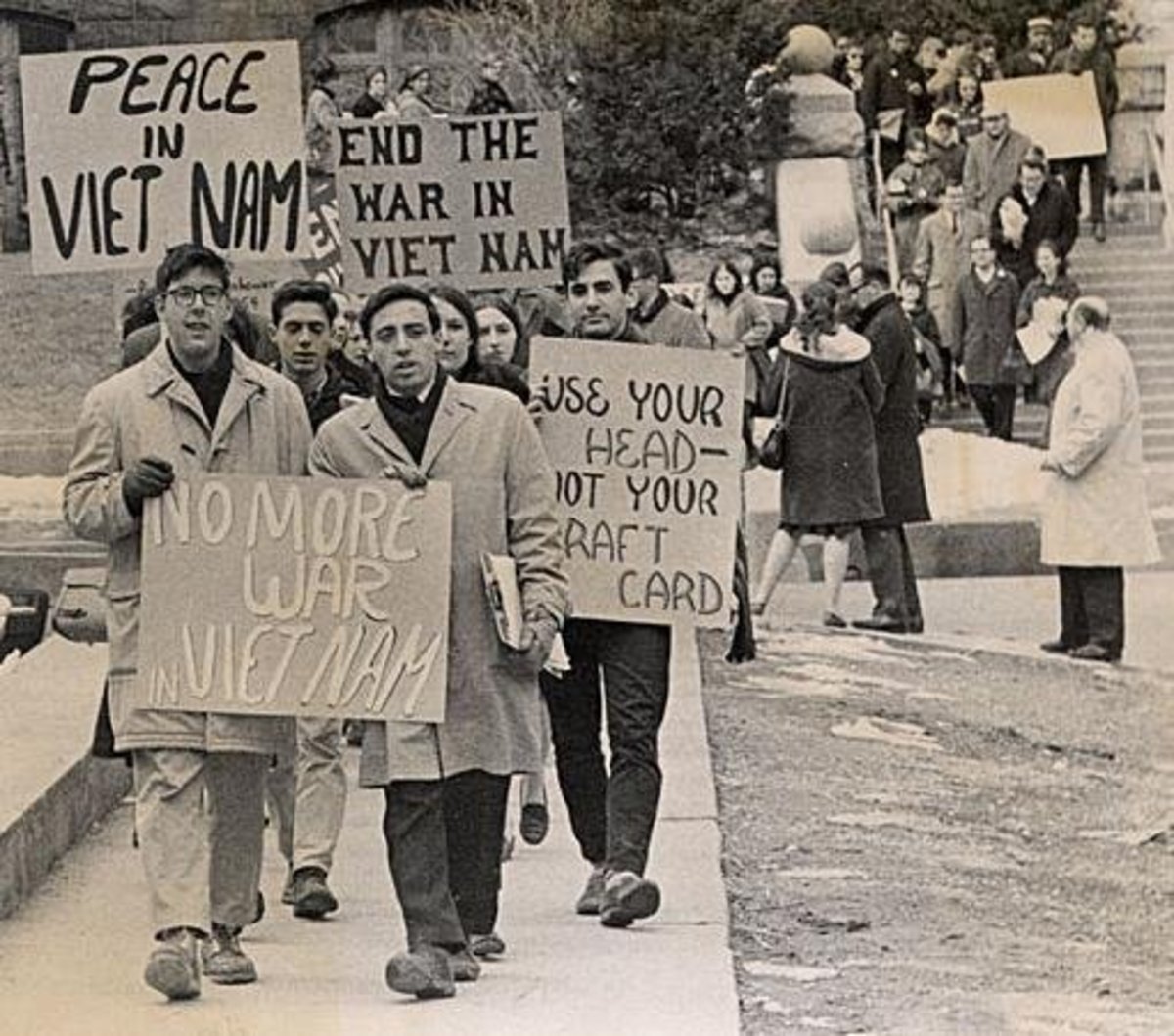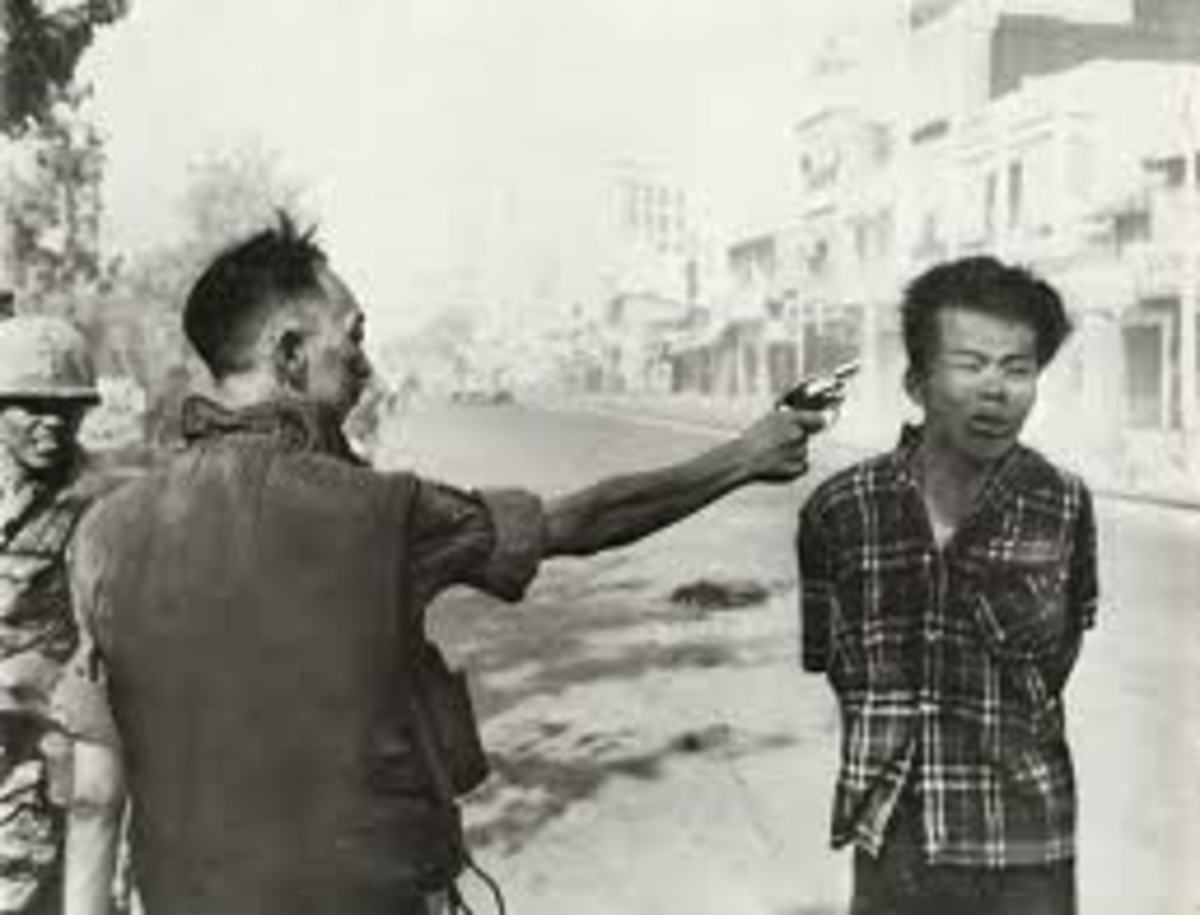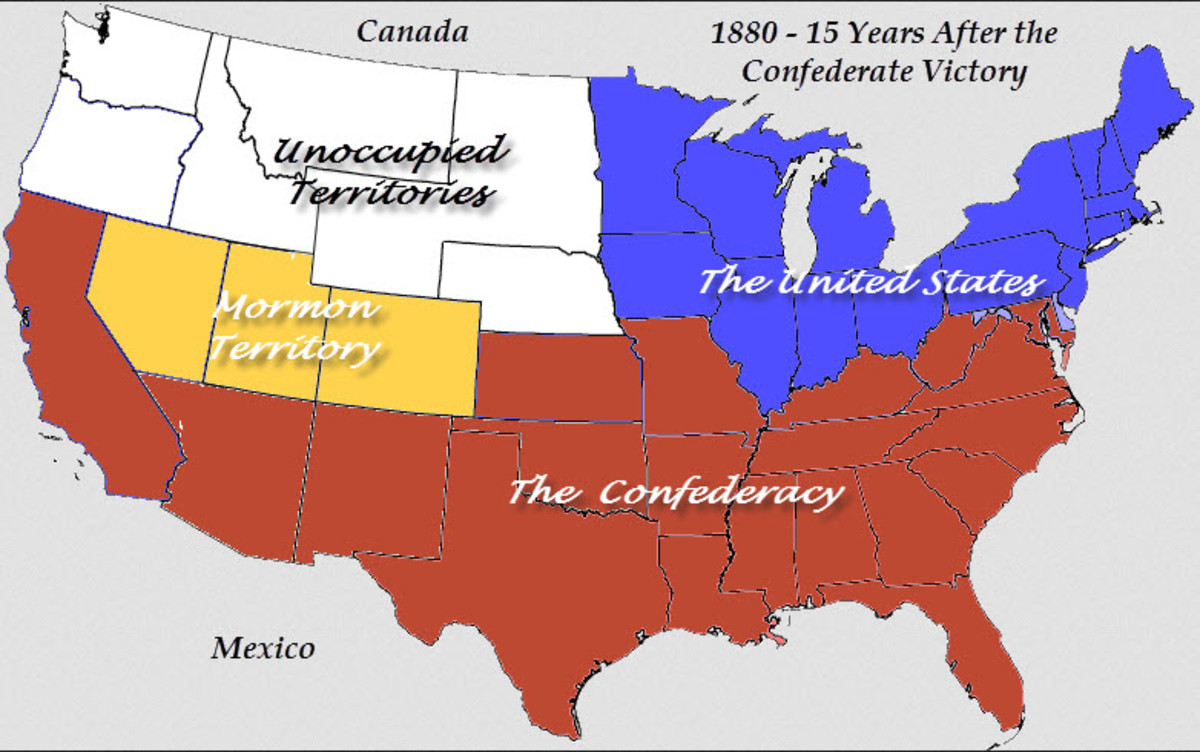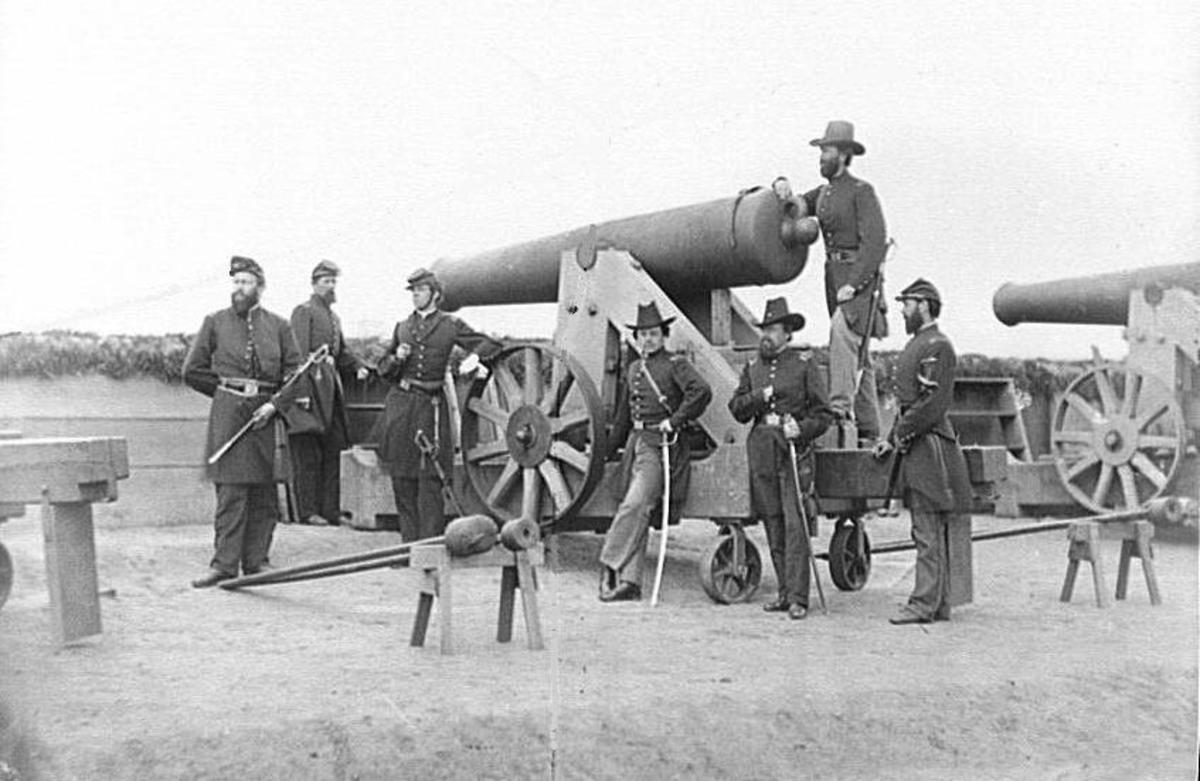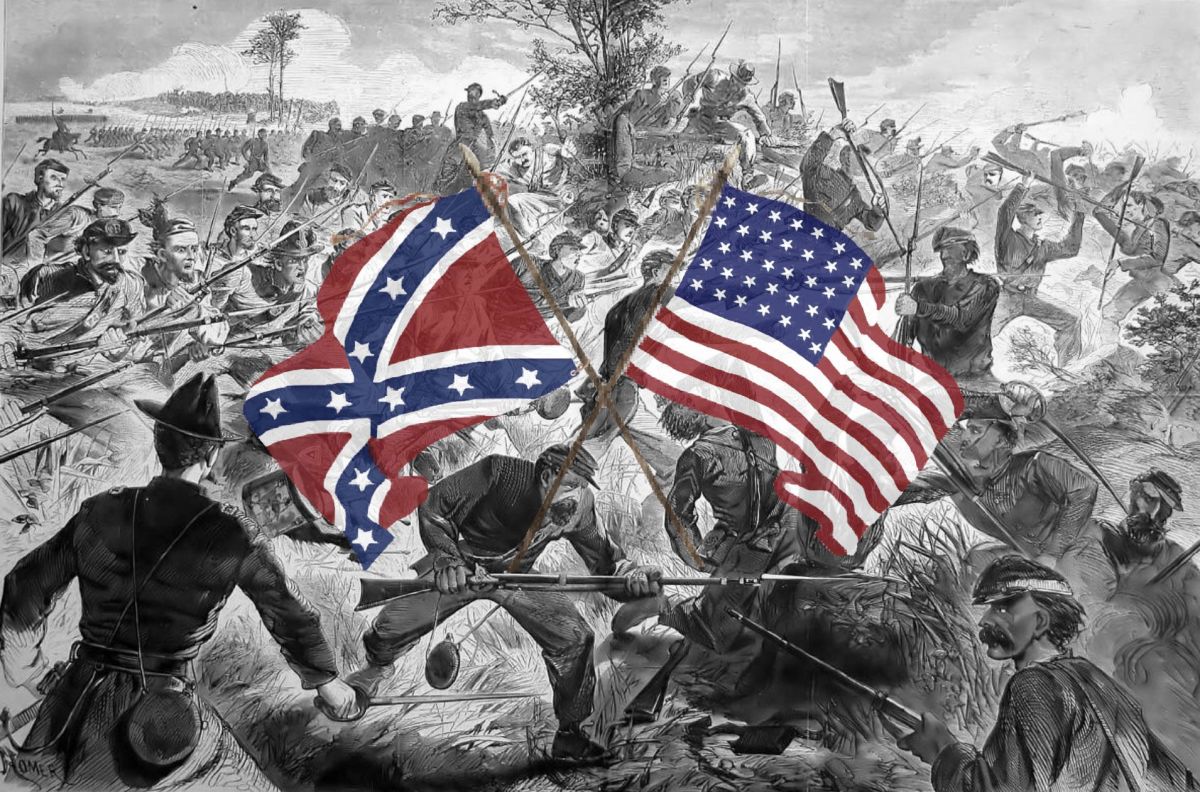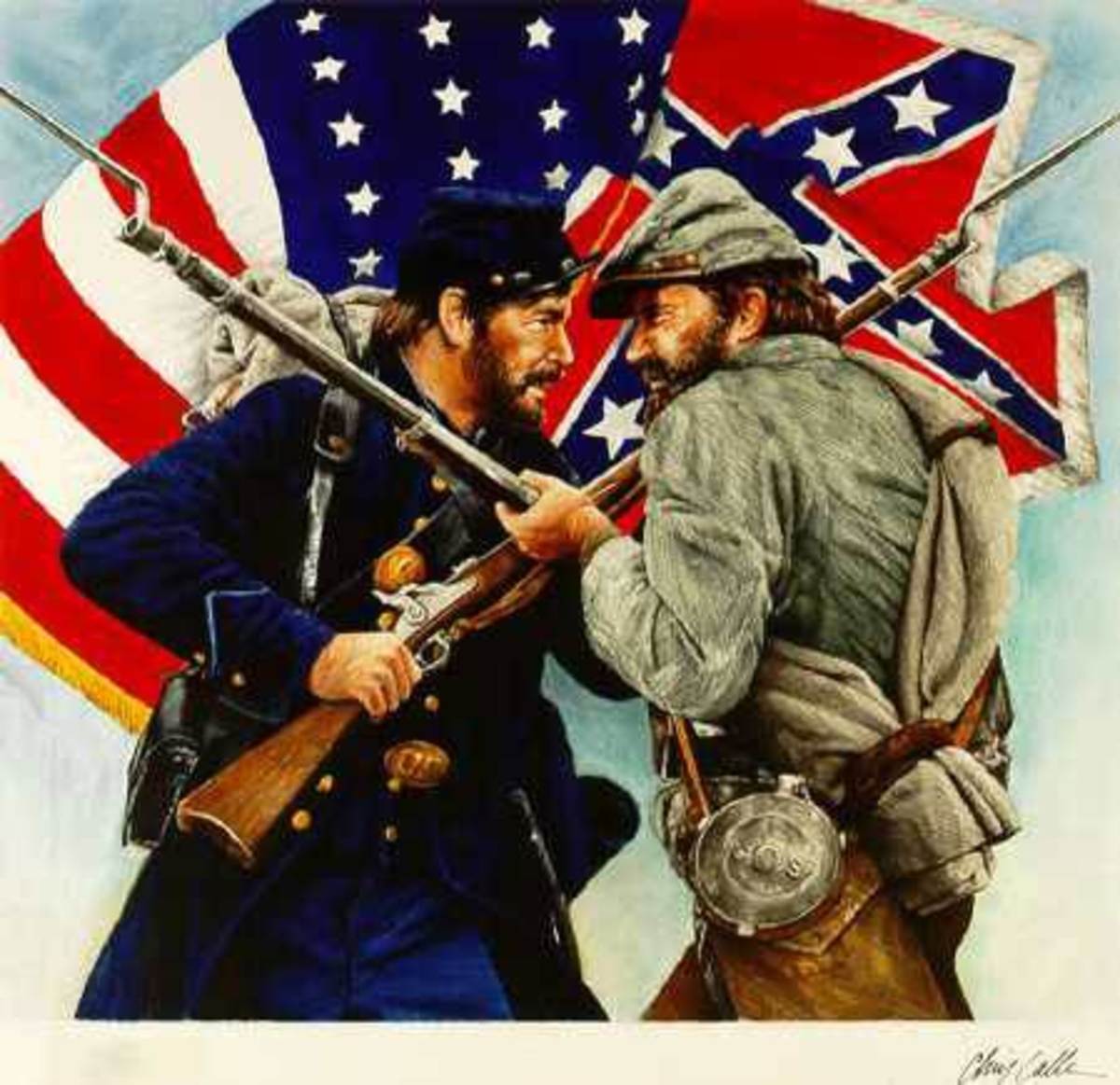- HubPages»
- Education and Science»
- History & Archaeology»
- History of the Americas»
- American History
Vietnam War
Why should American citizens learn about the Vietnam War?
The Vietnam War changed American citizens’ perception of war forever. Lasting for approximately two decades, the United States’ intervention in Vietnam was undoubtedly the lengthiest and the second most costly war in American history. Slightly over two million American soldiers were sent to the battlefields of Vietnam. According to Heuveline, approximately 58,000 lost their lives, over 300,000 were wounded and more than 14,000 soldiers were fully disabled. The United States’ Veteran’s Administration asserts that almost 800,000 veterans of the Vietnam War have been diagnosed with moderate to severe problems in readjusting to the society. The war cost hundreds of billions of dollars in taxpayers’ money. These costs will continue increasing for several decades to come in the form of interest on loans and veteran’s benefits. Over two million Vietnamese people lost their lives; four million people received extensive injuries while over ten million people were displaced from their homes. Over five million acres of forest and arable land was laid to waste by the American forces in Vietnam, using over 18 million gallons of Agent Orange, a poisonous herbicide. Presently, the current Vietnamese government has not been able to fulfill the needs of its citizens.
American citizens should learn about the war because over half of the present population of the United States does not have a clue about the war. Many American citizens have no clue about what should have been done. Differently, this discord should be bridged. This predicament is even worse for America’s young population, future citizens, and leaders. They have no of the Vietnam War and possess very little knowledge on it if none at all. Most adults with a significant knowledge of the war cannot talk about it. Schools and educational centers, institutions entrusted with sharing our heritage with learners, have simply ignored Vietnam. Coverage in school textbooks is normally limited to a few paragraphs or a few pages. American citizens need to learn about the Vietnam War because the war has been deliberately censored for being controversial.
Vietnam War
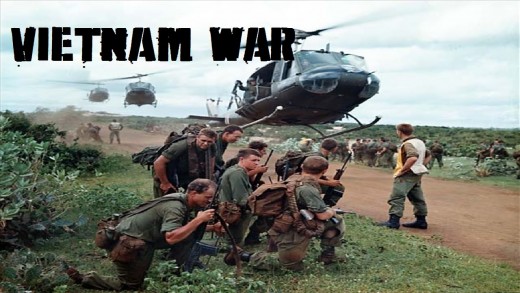
Background information on the Vietnam War
This Vietnam War was the longest war ever fought in American history; it lasted from 1955 to 1973. This war soiled America’s global image by being the first time in history that the U.S failed to achieve its defined war objectives; to protect an independent, separate, noncommunist government. It had a lot of effects on the American people. The American public was able to watch whatever happened on the battlefield; this is because it was the first war ever to be broadcast live on television. The Vietnam War caused a rift among the citizens of the United States. No war apart from the Civil War has divided the American people.
The conflict began even before the United States’ direct involvement.
Indochina, including; Laos, Cambodia, and Vietnam, was ruled by France. The Vietminh, a communist, and nationalist movement fought for the freedom of Vietnam from the French occupiers. With the French being slaughtered and nothing being done to protect South Vietnam from the communist north, the United States offered France financial aid to help with containing the situation. The United States’ and major powers could not agree on the handling of Indochina. It was concluded that the Vietminh would rule North Vietnam while South Vietnam would be governed by the emperor; Bao Dai. Elections were to be held in two years time to elect a permanent authority. However, the United States was not the party to these terms; it rushed to create the Southeast Asia Treaty Organization to protect countries in the Southeast Asian region from communist rule.
In the beginning, the attention of the United States was focused on other affairs. With the imminent threat of communism taking over the whole of Indochina, America involuntarily found itself being drawn into the conflict. South Vietnam had been the recipient of aid from the United States to help in the creation of an army to prevent the takeover by the North Vietnamese forces. In spite of this aid, South Vietnam was still losing and required a direct American intervention to enable it to maintain its territorial integrity.
The United States had a tough stance against communism, any nation threatened by communism qualified to receive American aid. All future presidents subsequently adopted this doctrine which originated from the Truman administration. It was applied during the Vietnam War. In what was known as the ‘domino’ theory, it was feared that if any Southeast Asian country succumbed to communism, other countries would eventually follow suit. Communism anywhere was an urgent threat to the US government. After his swearing in, John F. Kennedy sent his vice president, Lyndon B. Johnson to Vietnam, following the outbreak of civil war in Laos. He urged President Kennedy to get more involved in the conflict. Kennedy decided to deploy more military advisors and Special Forces, specifically the army’s Green Berets to train and work alongside South Vietnamese forces, rather than deploy combat troops. The president was misled about the deteriorating situation in Vietnam. Thus, he increased economic aid and deployed more military advisors.
The Vietnamese leader at the time was a Catholic; this did not go down well with the mainly Buddhist population. He was deposed in a 1963 CIA facilitated coup, sanctioned by the then American ambassador to Vietnam. Vice President Johnson took over the reins of power later that year following the execution of President Kennedy. Johnson felt that the US should still be involved in Vietnam as a show of commitment to curtail Communist aggression. In 1964, Vietnamese gunboats fired upon two US Navy vessels (Moore et al. 57), this gave Johnson an opportunity to escalate the war, and he sanctioned bombing raids over North Vietnam. He drastically increased the number of ground troops, airpower and sent the advisors into combat. Essentially, this was the start of the Vietnam War.
The importance of American citizens learning about the Vietnam War
The Vietnam War has been passionately debated over the years. This is because the war evoked fundamental questions regarding what the United States stands for in the global arena. It is a topic which has been extensively avoided in the nation (Woods 300). To ignore a topic such as this is to tell our future generation that they will not learn about what people care about most. In a democracy such as the United States, the best defense is to give the citizens the mental strength and character to defend themselves. The Vietnam War should be learned about not only because it has a prime position in American history, but because it is a glaring case of the evolving pattern of modern warfare (Woods 300). For several years, every American intervention worldwide has been compared to the war in Vietnam. In 1985, the Secretary of State, George Schultz stated that Vietnam was the most appropriate analogy for President Ronald Reagan’s policy in the Central America region.
The American loss in Vietnam is blamed on some factors. The North Vietnam and the Vietcong soldiers were more agile and stronger than previously anticipated. They used guerilla warfare tactics. This was unlike the conventional warfare that the United States military had grown used to. The Vietcong were fighting for a cause they were willing to die for; they were unlike the demoralized American soldiers who rarely had confidence in their goals. Therefore, Vietnam should be a warning for troops when fighting insurgents who have adopted guerilla tactics. American citizens need to learn about the Vietnam War to ensure that they realize that the most significant cost of war is human suffering. In as much as every war has a fiscal price tag, it is never felt instantly. Learning about the Vietnam War can also enable citizens to appreciate the importance of the role of the United States in ensuring that only legitimate governments carry the day worldwide. The US has a role in building any society that has been defiled by dictatorship and other social ills from the ground up.
Conclusion
The Vietnam War is a bitter-sweet chapter of American history, albeit a very expensive one. The democracy that the US government sought to build in Vietnam failed. Communist movements were enjoying a rising popularity all over Asia, from the Philippines to India, Malaysia, and Singapore to Indonesia. American citizens have to learn about the Vietnam War to ensure that they appreciate the role of this war in curtailing the spread of communism. Communist movements failed in Asia because the United States demarcated a line in Vietnam. This ensured that the Soviet Union, which was the center of communism, had to commit resources in challenging the US in the various theaters, Vietnam included. However, the cost of the war was too high; the war also had a devastating outcome in Vietnam. Being informed about the Vietnam War, most American citizens, from the President to the ordinary folks contend that the US cannot afford another war. Learning about this war has enabled American citizens to examine the experience critically, this is crucial when making decisions involving foreign policy today.


